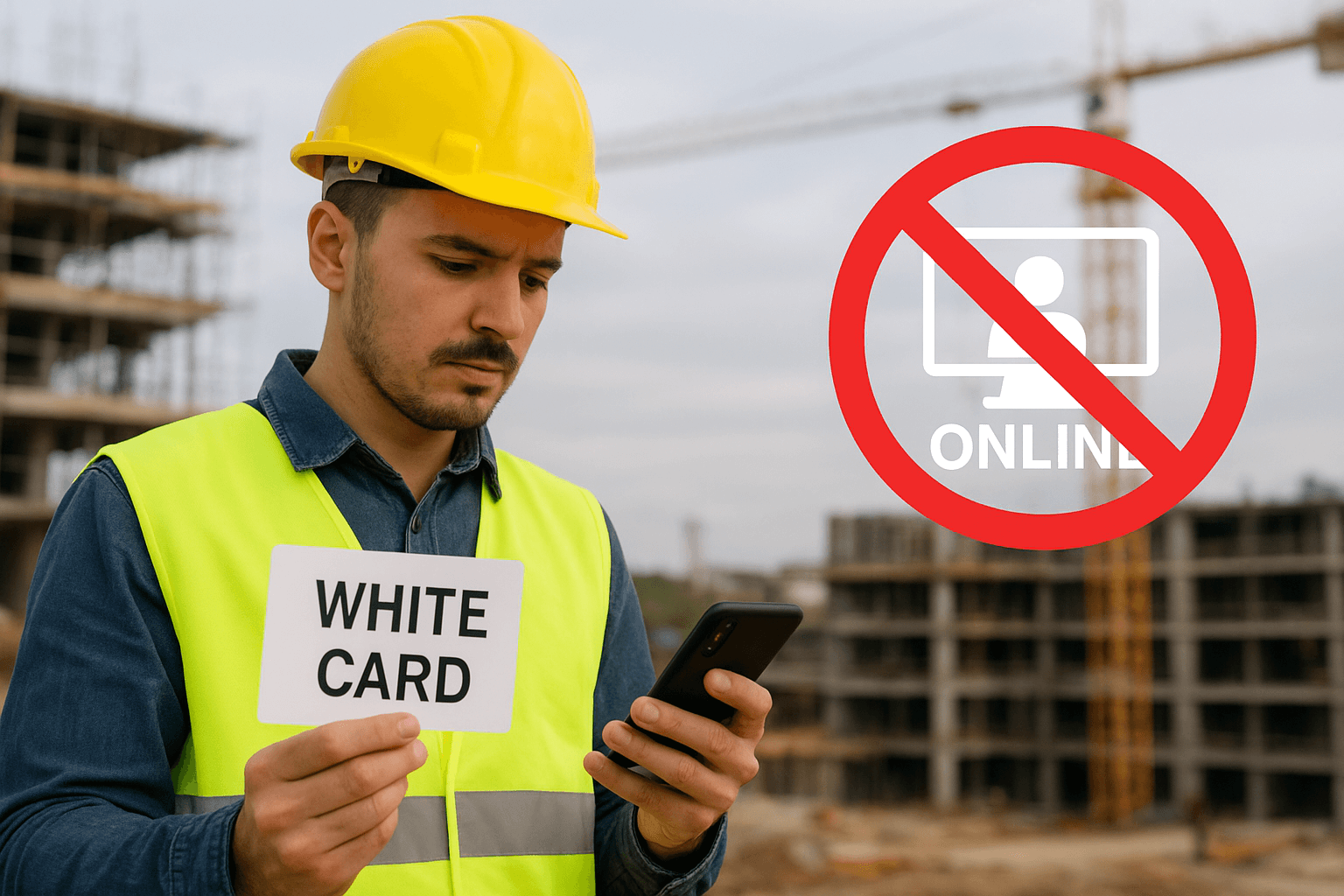Top 7 WHS Compliance Mistakes Small Businesses Make – and How to Avoid Them

Why WHS Compliance Matters More Than Ever in 2025
In 2025, Work Health and Safety (WHS) compliance is not just a regulatory obligation—it is a crucial aspect of business continuity, brand protection, and worker welfare. For small and medium-sized businesses (SMBs), managing WHS responsibilities can seem overwhelming. However, recent regulatory changes, increased penalties, and more frequent inspections mean that failure to comply can have serious consequences.
SafeWork NSW and other Australian regulators are focusing more on SMBs, holding business owners and officers accountable for breaches. With an increase in site audits and enforcement actions, small businesses must become proactive rather than reactive about workplace safety.
Mistake #1: Treating WHS as a Paperwork Exercise
Many small businesses mistakenly assume that maintaining a few safety documents or policies is enough to satisfy WHS laws. This “tick-the-box” mentality undermines the purpose of the legislation: preventing harm.
Why Real Safety Implementation Matters
Policies, procedures, and safety manuals are essential, but they must be implemented and embedded into daily operations. Safety documentation should reflect real activities, actual risks, and practical controls.
Common Signs of Token Compliance
- Generic templates not tailored to the business
- Safety documents sitting on shelves or servers unused
- Employees unaware of procedures or their purpose
How to Ensure Actionable Safety Plans
- Regularly update policies based on worksite realities
- Conduct practical training sessions
- Include all employees in safety conversations
Mistake #2: Outdated or No WHS Training for Workers
Training is a legal requirement under the WHS Act. Every worker must be trained to carry out their tasks safely. However, many small businesses either provide no training or rely on outdated, informal sessions that do not meet compliance standards.
Legal Requirement for Training
Section 19 of the WHS Act requires that PCBUs ensure workers are provided with the necessary information, training, instruction, and supervision.
Risks of Inadequate Training
- Workers may not know how to safely perform tasks
- Incorrect PPE usage
- Increased incidents and near misses
- Legal liability in case of injury
How AlertForce Can Help
AlertForce delivers nationally accredited WHS Act Awareness Training and industry-specific modules, ensuring compliance and competency.
Mistake #3: Not Consulting Workers and HSRs
Under the WHS Act, consultation with workers is mandatory, not optional. Yet many SMBs neglect this critical duty.
What Consultation Means in Practice
Consultation includes sharing information, giving workers an opportunity to express views, and taking those views into account. It is vital during:
- Identifying hazards
- Making changes to procedures or policies
- Planning WHS training or updates
Health and Safety Representatives (HSRs)
If HSRs are elected, they must be involved in consultation and may direct unsafe work to cease under specific conditions.
Setting Up Consultation Processes
- Toolbox talks and safety meetings
- Safety committees
- Incident reviews with worker input
Mistake #4: Poor Hazard and Risk Identification
Small businesses often overlook or underestimate hazards, especially in seemingly low-risk environments. However, all workplaces contain some level of risk.
Commonly Overlooked Hazards
- Ergonomic risks in office environments
- Noise and air quality in small workshops
- Mental health risks from stress or workload
Conducting a Risk Assessment
- Identify hazards (what could go wrong)
- Assess the risk (likelihood and consequence)
- Implement controls (elimination to PPE)
- Review regularly
The Hierarchy of Controls
- Elimination
- Substitution
- Engineering controls
- Administrative controls
- Personal protective equipment (PPE)
Mistake #5: Inadequate Record Keeping and Incident Reporting
WHS legislation mandates that businesses keep detailed records of safety-related activities. Poor documentation and failure to report incidents can result in serious fines.
Why Record Keeping is Crucial
- Evidence of compliance during audits
- Proof of consultation and training
- Data for improving safety performance
Key Documents to Maintain
- Risk assessments and SWMS
- Training records
- Incident reports and injury registers
- Audit and inspection results
Mandatory Incident Reporting
Businesses must notify regulators of serious injuries, dangerous incidents, or fatalities immediately. Minor incidents should still be recorded and reviewed.
Mistake #6: Failing to Review and Update WHS Practices
WHS is a dynamic process, not a one-time task. As work practices, environments, or legislation change, so should your safety systems.
Why Static Systems Fail
Outdated safety plans do not reflect current risks. Without ongoing review, businesses fail to adapt to:
- Technological changes
- New legal requirements
- Workforce turnover
Best Practices for Review
- Annual WHS audits
- Reviewing SWMS every 12 months or after incidents
- Re-training workers regularly
Mistake #7: Not Knowing the Legal Roles and Responsibilities
In small businesses, roles often overlap. However, the WHS Act clearly defines duties that cannot be delegated.
What is a PCBU?
A PCBU is a Person Conducting a Business or Undertaking—this includes sole traders, companies, partnerships, and not-for-profits.
Duties of Officers, Workers, Contractors
- Officers (e.g., directors) must exercise due diligence
- Workers must comply with instructions and use PPE
- Contractors must also be provided with a safe environment and supervision
Mistakes vs Compliance Actions:
| WHS Mistake | Legal Risk | How to Avoid | Suggested Action |
| No training | Legal breach, increased injury risk | Accredited, role-based training | Enrol with AlertForce |
| No consultation | Violation of WHS Act | Toolbox talks, include HSRs | Appoint HSRs, run safety meetings |
| Poor documentation | Fines, inability to prove compliance | Maintain records digitally | Use AlertForce templates |
| Outdated SWMS | Serious incident or non-compliance | Review every 12 months | Conduct WHS audits |
| Ignored hazard identification | Increased accidents, legal liability | Schedule regular assessments | Train in hazard recognition |
| Static systems | Legal gaps, unmanaged risks | Continuous improvement approach | Annual reviews |
| Undefined roles | Prosecution of wrong personnel | WHS role clarity training | Define PCBU, Officer roles |
How AlertForce Helps Small Businesses Stay WHS Compliant
WHS Act Awareness Training
AlertForce offers nationally recognised training to help businesses and their workers understand legal obligations and implement compliant practices.
Role-Specific Training Modules
Courses include:
- Health and Safety Representative (HSR) Training
- White Card Training
- Chain of Responsibility (CoR) Training
- Asbestos and Confined Space Training
Flexible Delivery Options
- Online learning for remote teams
- Face-to-face for practical environments
- Custom corporate training packages
Support and Consultation
AlertForce assists with:
- WHS audits
- LMS access for training management
- Compliance planning
Final Thoughts: Compliance Isn’t Optional for Small Businesses
WHS compliance in 2025 is not only about avoiding penalties but protecting your employees and business reputation. Small businesses that ignore safety obligations put themselves at serious risk.
By partnering with AlertForce, you can:
- Access accredited WHS training
- Develop strong compliance systems
- Build a safer, more productive workplace
Take the first step towards full WHS compliance. Contact AlertForce today to speak with a safety specialist or enrol in a tailored training program designed for small businesses in NSW and across Australia.
FAQs:
Do small businesses need to follow the WHS Act?
Yes, all businesses in Australia, regardless of size, must comply with the WHS Act and ensure a safe working environment.
What is the biggest WHS mistake small businesses make?
The most common mistake is treating WHS as just paperwork instead of actively managing workplace risks.
Is WHS training mandatory for all staff?
Yes. Employers must ensure all workers are trained to safely perform their duties, especially in high-risk environments.
How often should WHS policies be reviewed?
WHS policies should be reviewed at least annually or after any incident, new equipment, or major workplace change.
How can AlertForce help my business with WHS?
AlertForce offers accredited WHS training, role-based courses, and compliance support tailored for small businesses.
Yes, all businesses in Australia, regardless of size, must comply with the WHS Act and ensure a safe working environment.
The most common mistake is treating WHS as just paperwork instead of actively managing workplace risks.
Yes. Employers must ensure all workers are trained to safely perform their duties, especially in high-risk environments.
WHS policies should be reviewed at least annually or after any incident, new equipment, or major workplace change.
AlertForce offers accredited WHS training, role-based courses, and compliance support tailored for small businesses.





















